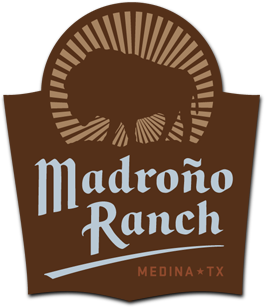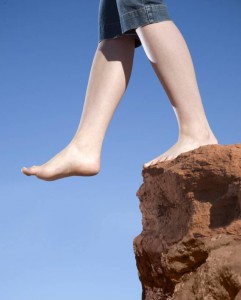“The secret history of sex is not a story of fulfilled desires; it’s a story of expectations dropped off the cliff of the unknown.” (Nathan Heller)
This is not a blog about sex, but this sentence stayed with me long after I read it. It’s from a review in The New Yorker of Andrew Solomon’s Far From the Tree: Parents, Children, and the Search for Identity, in which Solomon examines the stresses placed on a family’s vertical identity—the one that flows through the generations—when a child presents the logjam of a horizontal identity, an identity outside of parental experience. Among the horizontal identities that Solomon investigated over ten years in more than 300 families are dwarfism, deafness, autism, children of rape, severe multiple disability, and transgenderism. How, the book asks, do parents come to love children they never expected?
This is not a blog about horizontal identity or parenting, either. But it is about desires and the unknown, about the gap between what we feel within ourselves and what happens outside ourselves: the sinkholes that can suddenly open up, evaporating what appeared to be solid, or what was solid and then was just gone. About what can and cannot be named.
During this Lenten season, our church has hosted a weekly series on “Art and the Other,” i.e., those individuals or groups who present us with logjams in the flow of our own identities. The series examines how art can be a bridge between “us” and “them,” or at least a gesture in “their” direction. At one gathering, after viewing a film-in-progress on the importance of interfaith dialogue, we tried to identify just whom we, as an Episcopalian congregation, see as “the other.” We were pleased to note that we were fine with Muslims, Jews, Buddhists, Hindus, atheists, Jainists, Wiccans, and macrobiotists; we agreed that no group has a monopoly on enlightenment or salvation. But our generosity dried up when we considered those groups we view as intolerant and insistent upon the supremacy of their own creeds. In our refusal to tolerate intolerance, we wondered, were we in fact mirroring it? How do you engage with a rejection of engagement? And the question that really stayed with me: When you step off the cliff of desire—which you do every time you hope to make any kind of contact with someone else—imagining some kind of fulfillment, how do you respond to a wholly unexpected reply, or none at all?
Or perhaps that wasn’t the question, which seems to slither away every time I try to focus on it. In the discussion, we seemed to be framing the question as an issue of tolerance, but as the lovelorn Henrik laments in Stephen Sondheim’s A Little Night Music, “it’s intolerable/being tolerated.” And so it is. According to Dictionary.com, the verb to tolerate can mean “to endure or resist the action of (a drug, poison, etc.)” or “to allow the existence, presence, practice, or act of without prohibition or hindrance, or contradiction; permit.” To tolerate someone or something, then, seems to point to an engagement that can leave the tolerant one comfortably unchanged or unchallenged. Tolerance is often counted as a virtue in the midst of the sinkholes that open up between individuals or groups, when it is merely a pause to catch your breath in the arduous, open-ended journey of communication.
Part of the problem with posing the question is the notion of individual identity as a rock we stand on, a location with well-defined boundaries like a modern nation-state that need to be defended from encroachment. One definition of identity that I love comes from Lewis Hyde’s The Gift: Creativity and the Artist in the Modern World, from which I’ve quoted before. Hyde is writing more specifically of ego, which is not perhaps the same thing as identity, but there are significant overlaps. This is a lengthy quote, but more than worth the space:
I find it useful to think of the ego complex as a thing that keeps expanding, not as something to be overcome or done away with. An ego has formed and hardened by the time most of us reach adolescence, but it is small, an ego-of-one. Then, if we fall in love, for example, the constellation of identity expands, and the ego-of-one becomes the ego-of-two. The young lover, often to his own amazement, finds himself saying “we” instead of “me.” Each of us identifies with a wider and wider community, coming eventually to think and act with a group-ego … which speaks with the “we” of kings and wise old people. Of course, the larger it becomes, the less it feels like what we usually mean by ego…. In all of this we could substitute “body” for “ego.” Aborigines commonly refer to their own clan as “my body,” just as our marriage ceremony speaks of becoming “one flesh.” Again, the body can be enlarged beyond the private skin, and in its final expansion there is no body at all. When we are in the spirit of the gift we love to feel the body open outward. The ego’s firmness has its virtues, but at some point we seek the slow dilation, to use [a] term of Whitman’s, in which the ego enjoys a widening give-and-take with the world and is finally abandoned in ripeness.
At the core of any great religion is some person or group whose heart has broken open to admit the world, whose boundaries have grown permeable, whose ripeness is a fragrance that fills the space around it like the nard with which Mary of Bethany anointed Jesus’ feet in the week before his death. Religion is not the only self-breaker and heart-opener, of course; there are many containers that help us to bear great beauty and great suffering—art, nature, family, and friends among them. The self that seeks mere tolerance of its neighbors in the light of this paradigm has elected a diet of crumbs and water instead of the extravagant feast set before it.
Often, however, we do choose crumbs and water. We choose to walk away from the urgent desire for congress and from the cliff of the unknown. Yet sometimes the choice is made for us, when we long for connection and find nothing. What then?
In his most recent book, Healing the Heart of Democracy: The Courage to Create a Politics Worthy of the Human Spirit, Parker J. Palmer names democracy at its root level as one of the containers that help us to bear the great beauty and suffering of history in such a way that our hearts break open rather than merely breaking into a million irretrievable pieces. This is not an essay about a political system. But I do want to try to describe the sinkhole—the no-ego’s land—between desire for communication and fulfillment. Palmer calls this place the “tragic gap,” tragic not just because it’s heartbreaking but because, in the classical sense, it’s an inescapable feature of the human psychic landscape:
On one side of that gap, we see the hard realities of the world, realities that can crush our spirits and defeat our hopes. On the other side of that gap, we see real-world possibilities, life as we know it could be because we have seen it that way…. Possibilities of this sort are not wishful dreams or fantasies: they are alternative realities that we have witnessed in our own lives.
In this gap we can sink into corrosive cynicism or fritter away our energy on irrelevant idealism, but another way offers itself, one that allows “the slow dilation” of the boundaries between self and neighbor, self and world, self and self, the boundaries that prevent the cliff-side communion we so long for. Palmer calls us to a complex and open-ended faithfulness, in which I would incorporate two questions adapted from Krista Tippett to help direct us toward the habit of conversation and away from monologue: what troubles me about my own position? What in my would-be partner’s position makes me curious?
In the end, I think this is an essay about hope, despite the feelings of frustration and helplessness that spurred it. It’s not about the hope that seeks magically to rearrange present reality. Rather, it’s a testament to the small acts of great love that pepper everyday life and that step forth despite the absence of an obvious place to step onto, the way many parents step into the slow dilation of identity that embraces a situation or a child they would have done anything to avoid. It’s a testament to anyone who steps off the cliff of ego, willing to land in an unfamiliar place, willing to endure the possibility of a heart broken open. In a world in which conversations seem crucified between shouting and silence, sometimes a quiet question is enough.
What we’re reading
Heather: Andrew Solomon, Far from the Tree: Parents, Children, and the Search for Identity
Martin: Craig Brown, Hello Goodbye Hello: A Circle of 101 Memorable Meetings


Martin and Heather… what a lovely Easter gift… the gift of both of you!!! So glad to have my Free Range Fridays full of you both!
I’m also considering individual identity. I tend to melt into everything and everyone around me most of the time. The paltry parts of me I keep inside don’t impress me much. You know that I only care about serious poetry, so here’s the most serious poem I could find on the subject:
Compliments of a Friend
by Ogden Nash, from The Best of Ogden Nash, edited by Linell Nash Smith (Chicago: Ivan R. Dee, 2007), p. 424-425.
How many gifted pens have penned
That Mother is a boy’s best friend!
How many more with like afflatus
Award the dog that honored status!
I hope my tongue in prune juice smothers
If I belittle dogs or mothers,
But gracious, how can I agree?
I know my own best friend is Me.
We share our joys and our aversions,
We’re thicker than the Medes and Persians,
We blend like voices in a chorus,
The same things please, the same things bore us.
If I am broke, then Me needs money;
I make a joke, Me finds it funny.
I know what I like, Me knows what art is;
We hate the people at cocktail parties,
When I can stand the crowd no more,
Why, Me is halfway to the door.
I am a dodo; Me, an auk;
We grieve that pictures learned to talk;
For every sin that I produce
Kind Me can find some soft excuse,
And when I blow a final gasket,
Who but Me will share my casket?
Beside us, Pythias and Damon
Were just two unacquainted laymen.
Sneer not, for if you answer true,
Don’t you feel that way about You?
Personally, my tolerance for “otherness” is lowest when I step off that cliff, expecting (at a minimum) to be heard, and am shut down. Hurt and confusion lead to anger. Historically the walls thrown up against me in that valley are because I am female, or perceived as liberal—opinions guaranteed to set me off. Invariably I interpret the opposition as patronizing and bass-ackwards.
What I love is the number of conservative-minded friends in my life, who step off their cliff as I step off mine, for a caring, significant conversation. Small acts of great love.
So glad you guys are on! Much love….